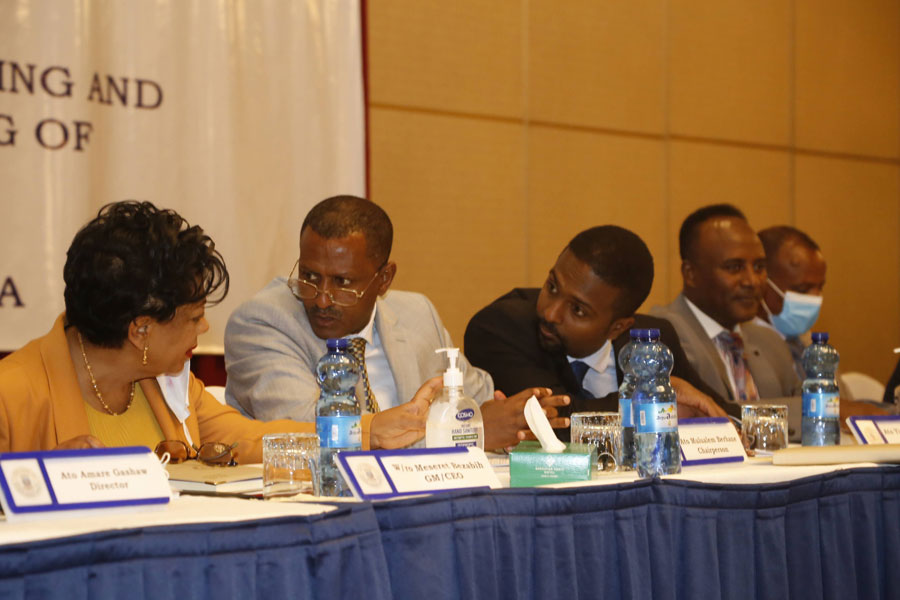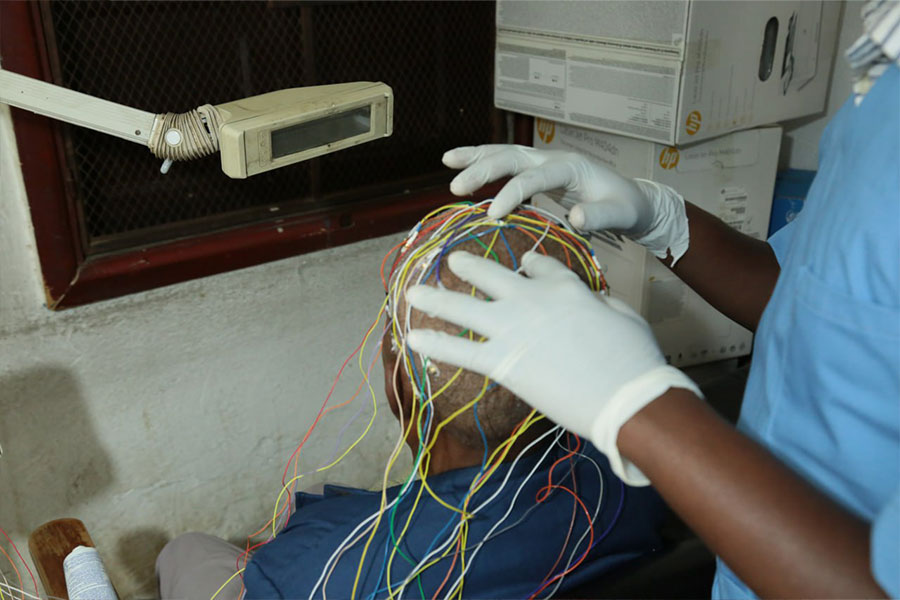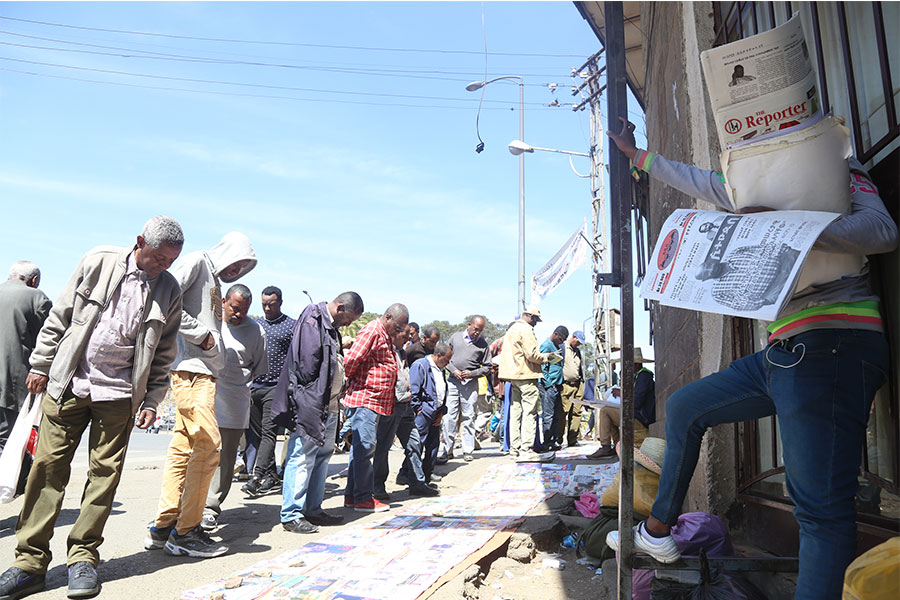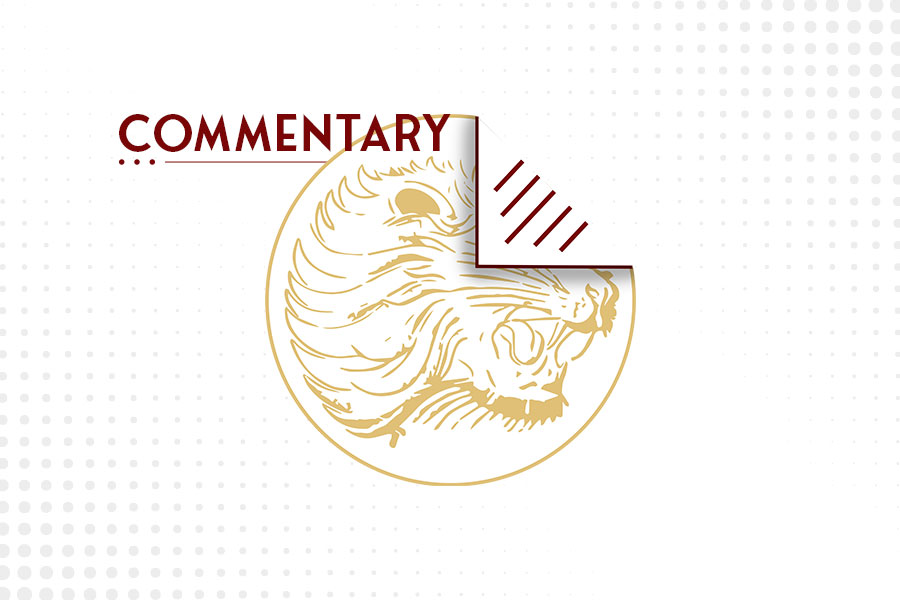
Agenda | Mar 11,2023
May 8 , 2021
By Christian Tesfaye
I registered to vote to see what it is like. It is a rather drab process. Some two youth employees of the National Electoral Board of Ethiopia took my background information, asked where I intended to vote and wrote my name and details on a large ledger. In return, I was given a card that I am required to bring to the polling station. The whole affair may have taken five minutes.
I do also intend to go and vote on polling day. If nothing else, I would like to see what it is like, how the people feel, and how election officials treat voters. It will be my first time doing as such, although I had been eligible for one previous election, a time when nothing seemed to be at stake.
I also have no idea whom I will be voting for. There are not that many exciting options, nor am I under the illusion that my voice in such a country matters anywhere near as much as I would like it to. This is Africa. Worse still, this is the Horn. People do not matter, the political elite does, and they are not about to relinquish their power and influence for something as alien to the region as representative democracy.
Then, why vote?
Some people are genuinely excited about the possibility of putting in place leaders of their choice in parliament. For me, and I would assume many people, it is a bit of desperation.
What is left if people feel so disillusioned with their elites' handling of politics so as to reject the whole electoral process?
Voting allows many to feel they have the power to choose their representatives in power. It gives them hope, which is a rare currency these days. More importantly, though this election may not be considered fair, the jury is still out on how free it could be. The Electoral Board, under Birtukan Mideksa, despite the myriad of crises this country is going through, has maintained a semblance of independence. The courts also remain untested on how fairly they arbiter election-related disputes. Many may not feel like it, but the possibility of a more diverse set of MPs could still not be discarded.
I am also voting because of the possibility that the central government may continue to be weak in the absence of a strong voter turnout. It is unfortunate that a political transformation that started with much promise deteriorated to such depths of insanity. Even the most cynical amongst us could barely fathom what would eventually occur when most of the country was drunk with elation just three years back.
But the rapid deterioration of our circumstances should not obscure the fact that a government that lacks electoral legitimacy is the answer to the problem. However much we detest our current political conditions, the fact that it could get worse should not be forgotten. If we are to claw our way out of this darkness, it would be with the support of a central government able to ensure the safety and wellbeing of citizens through a monopoly of violence.
A low voter turnout would mean yet another constitutional crisis. In many a developed country, this is a significant hiccup but not one that threatens to drag the entire country into chaos. Ethiopia does not have the institutions. Neither does it have a political elite able to craft a course out of ideological and political challenges and confusions.
The lowest starting point is the avoidance of violence, and this could only happen through a central government with an electoral mandate. Voting, although many seem to believe that their political future is written for them, is the first step out of Ethiopia’s winter of despair.
PUBLISHED ON
May 08,2021 [ VOL
22 , NO
1097]


Agenda | Mar 11,2023

Fortune News | Nov 20,2021

Agenda | Oct 28,2023

Fortune News | Nov 07,2020

Agenda | Dec 19,2018

Viewpoints | May 18,2024

Commentaries | May 01,2020

My Opinion | Apr 13, 2025

Commentaries | Apr 15,2023

Editorial | Feb 22,2020

Photo Gallery | 174791 Views | May 06,2019

Photo Gallery | 165013 Views | Apr 26,2019

Photo Gallery | 155261 Views | Oct 06,2021

My Opinion | 136727 Views | Aug 14,2021

Dec 22 , 2024 . By TIZITA SHEWAFERAW
Charged with transforming colossal state-owned enterprises into modern and competitiv...

Aug 18 , 2024 . By AKSAH ITALO
Although predictable Yonas Zerihun's job in the ride-hailing service is not immune to...

Jul 28 , 2024 . By TIZITA SHEWAFERAW
Unhabitual, perhaps too many, Samuel Gebreyohannes, 38, used to occasionally enjoy a couple of beers at breakfast. However, he recently swit...

Jul 13 , 2024 . By AKSAH ITALO
Investors who rely on tractors, trucks, and field vehicles for commuting, transporting commodities, and f...

Oct 18 , 2025
The political establishment, notably the ruling party and its top brass, has become p...

Oct 11 , 2025
Ladislas Farago, a roving Associated Press (AP) correspondent, arrived in Ethiopia in...

Oct 4 , 2025
Eyob Tekalegn (PhD) had been in the Governor's chair for only weeks when, on Septembe...

Sep 27 , 2025
Four years into an experiment with “shock therapy” in education, the national moo...

Oct 18 , 2025 . By NAHOM AYELE
In a sweeping reform that upends nearly a decade of uniform health insurance contribu...

Oct 18 , 2025 . By BEZAWIT HULUAGER
A bill that could transform the nutritional state sits in a limbo, even as the countr...

Oct 18 , 2025 . By SURAFEL MULUGETA
A long-planned directive to curb carbon emissions from fossil-fuel-powered vehicles h...

Oct 18 , 2025 . By BEZAWIT HULUAGER
Transaction advisors working with companies that hold over a quarter of a billion Bir...